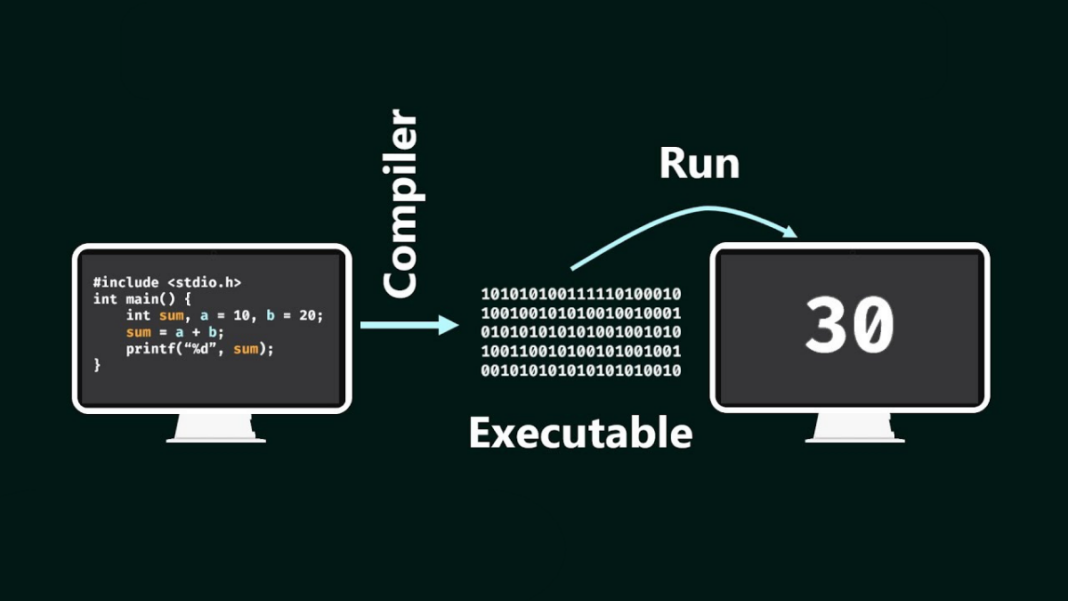Did you know?
The compiler is touted as software that transforms the program that is documented in a source language or the high-level language into the desired machine or low-level language!
The translation operation is carried out in a way to detect errors and runs the program in an easy and efficient manner.
As a new and budding programmer, you will often ask the question of several operations performed by the C++ Compiler.
From performic basic operations to getting the efficient run of the program with that of compilation phases, you will study several compiler functions.
Read all the key functions of a compiler with our blog post and fill your knowledge base.
Compiler – an overview
In computer language, a compiler is defined as a computer program that helps translate the computer code into the target language code. Or, this name is primarily used to convert the source code from a high-level language to another low-level language.
Some compilers also help in converting the high-level language into the assembly language as a prerequisite step. Though, some other C++ compilers may directly convert it into machine code.
When it comes to the study of compilers, you will basically study three types of compilers which are:
- Single pass compiler: When you merge all the compiler phases in a single module, it is called the single phase compiler. Here, in this type, the source code will be converted into the machine code.
- Two pass compiler: In the case of two pass compiler, a processor runs two pass programs to run it in an ideal way.
- Multipass compiler: There will be the source code of a program with a syntax tree where the code will be processed several times. That is why it is known as a multipass compiler. It will break down the huge program into several small programs to run all of them at the same time. It then creates several numbers of intermediate codes. As a result, it will consume less memory.
Basic Operations of Compilers
When you work on compilers, you should know about all the basic operations that are performed by a compiler.
Some of the most important tasks that are performed by the compiler are discussed below:
- It breaks down a required source program in chunks to apply it to the grammatical structure
- You can create a symbol table to apply the intermediate representation of a desired source code
- It helps in the compilation of the source code and detects all types of errors
- It organises all the codes to use in the program
- It separates the compilation process to better support it in an ideal way
- It reads the entire program, separates it, translate it into the form of a semantic language
- Depending on the kind of machine, it then converts the source code into the object code
Functions of a compiler
When you work on a compiler, you will get the opportunity to learn about its versatile functions and compilation phases. It is the process that converts the high-level language code into the target machine language code.
It performs all of these functions in order to execute the program and inform a developer about the errors committed and programs executed.
Lexical analysis
The first stage of any compilation process is doing the lexical analysis. During these phases, the compiler will split the required source code into fragments known as lexemes. It is an abstract unit of a particular language with that system.
For example;
String greeting = ‘hello’
After the split of codes in the lexeme, another sequence of code is created which would be the final product. Lexical analysis is also called by the name of tokenization.
Syntax analysis
In the case of syntax analysis, the compiler will first use the sequence of tokens that will be generated during the first stage. Tokens are called the abstract syntax tree that will represent the logical structure of any program.
Here, the compiler will check if the grammatical structure of a source will match the correctness of a syntax or not. Any syntax error may also cause the compilation error.
Semantic analysis
Here, in this case, the compiler will use the abstract syntax tree in order to detect all types of semantic errors. This may include assigning the wrong value to a variable or declaring the variable with that of the same name or scope.
Here, you can do type-checking for arithmetic operations, functions or method calls. You can also do flow control checking and label checking.
Intermediate code generation
In the case of compilation, compilers are also involved in the code generation process. Though, the code is not in the high-level or machine-level language. Moreover, this intermediate code stays the same for all the compilers.
Code Optimiser
After the code is generated, it is then optimised in an ideal way. The function would be to convert the code so that it can execute faster with the help of a few resources. Then it removes all the useless lines in order to rearrange the code in an ideal way. Moreover, the meaning of your code will also stay the same.
Target code generator
Then, it converts the intermediate code into the required machine code. This is regarded as the final stage of your compilation process. Here, in this stage, your machine code that is produced will then be relocatable.
Additional learning – Tailwind CSS
Besides learning the functions of a compiler, it is essential for you to learn about other essential concepts like Tailwind CSS. It is defined as an open-source CSS framework that is more than just a library. It helps in bridging the gap between dev and design for better functioning of a program.
Also Read: Injectog App: Features | How To Download?
Wrapping up
Compilers are touted to be the most useful and efficient concepts that every programmer should know. C++ compilers are touted to be efficient software that performs several functions. Know about all these functions with the help of our blog post.




